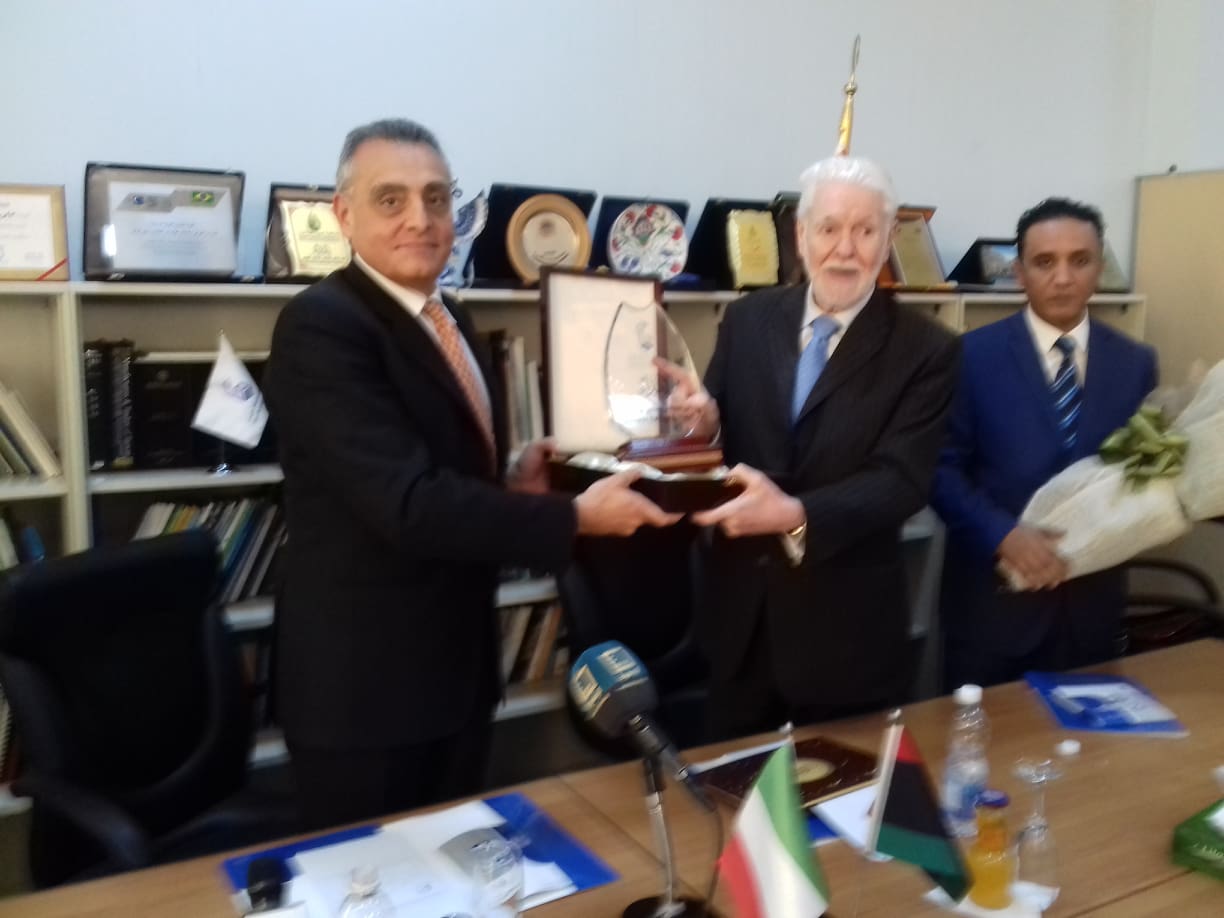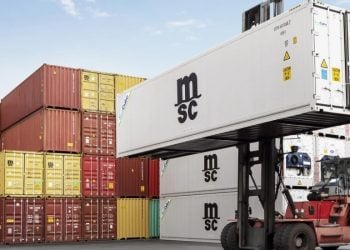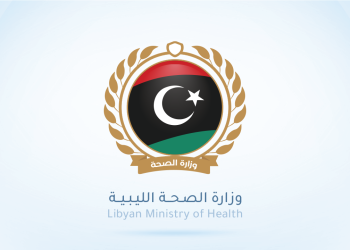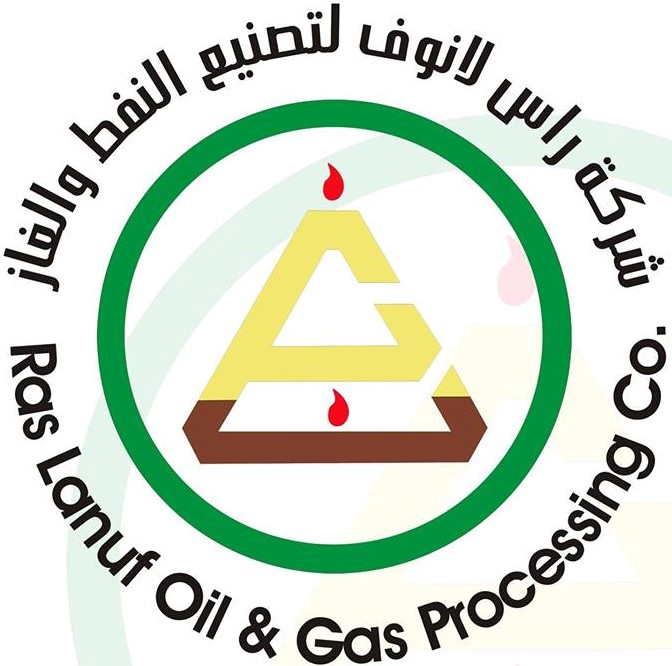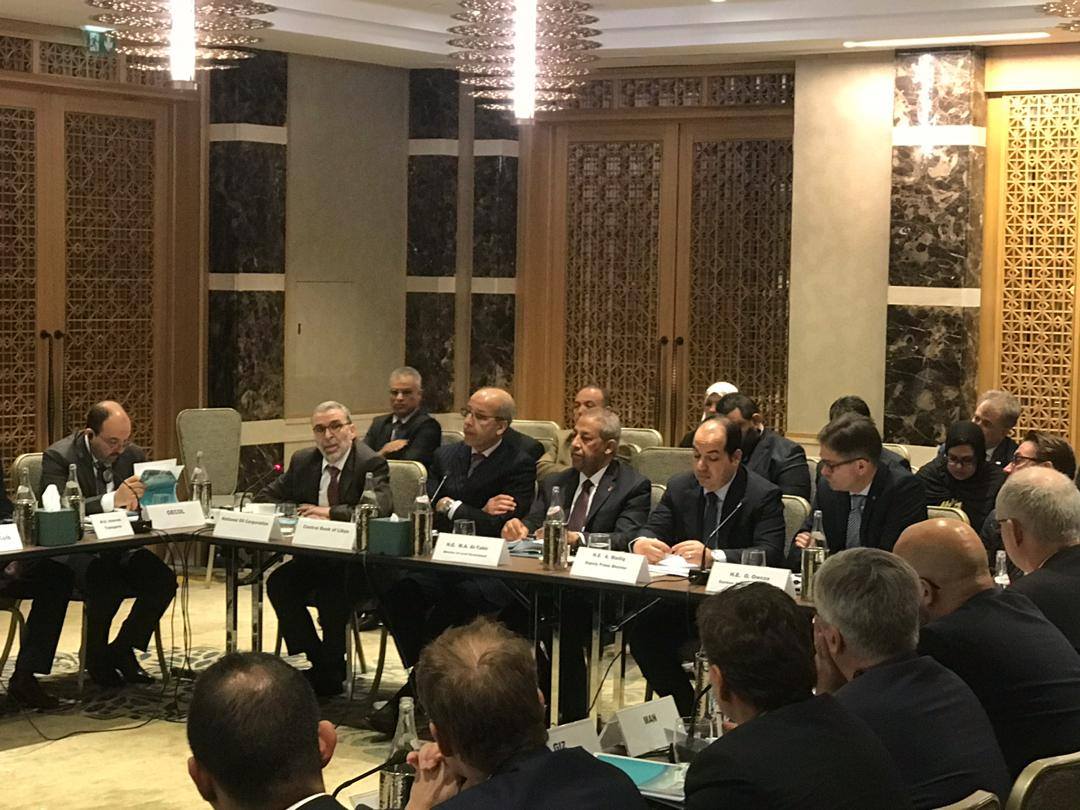By Sami Zaptia.
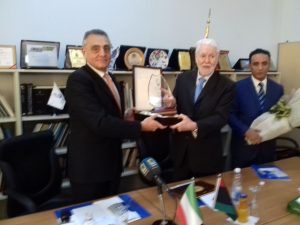
London, 11 March 2019:
The Libyan Business Council (LBC) and Italy’s ambassador to Tripoli, Giuseppe Buccino Grimaldi, discussed a number of private sector trade and investment topics during their meeting on Sunday.
The meeting held at the LBC’s headquarters in Tripoli included several members of the LBC from other Libyan cities.
Speaking exclusively to Libya Herald after the meeting, LBC chairman, Abdalla Fellah, offered his ambitious vision for a huge Libyan-Italian linkage over and beyond the simple, traditional trade model.
He said that Libya and Italy had a natural affinity due to history, logistics and geography. He called for a synergy between the two neighbours and for Italy’s business sector to use Libya as their cost-effective ‘’offshore’’ base.
‘‘Italy should exploit Libya’s proximity, demand and virgin 2,000 km of coastline and beaches for trade, industry and tourism to expand its ‘Made in Italy’ brand and model’’, he explained. He also felt that Libya with its high birth rate and over two thirds ”young” population can offer a solution to Italy’s low birth rate and aging population.
Beyond upskilling Libya’s citizens to serve Italy’s economy, Fellah saw a neat solution for the problem of illegal migration and terrorism. ‘’Italy can use Libya’s vast coastline and size to create offshore business and industrial zones employing sub-Saharan Africans here too’’, he explained.
Fellah said that Libya was not an industrial productive country and was likely to remain an importer of value-added finished goods for the short to medium term.
‘’Libya needs to import nearly everything – from A to Z – and Italy is a major industrial producer and exporter. There is a huge demand on one side – the Libyan side – and a huge capability to manufacture and export on the other side – the Italian side’’.
‘’There is a natural complementarity between the two countries, with only a ‘small’ body of Mediterranean water in between us that can be traversed by sea or air in a very short period of time. It’s a huge opportunity for both countries – to solve both their respective problems. It’s a clear win-win scenario for both’’, Fellah emphasized.
After decades of wasted development opportunity under the Qaddafi regime and the wasted years of political and military strife since the 2011 revolution Fellah is in no doubt that ‘’Libya needs billions worth of investment and offers billions worth of investment opportunities’’ which Italy should exploit before others do.
”Libya will recover sooner or later and Italy should move fast and first to maintain its Libya advantage’’, concluded Fellah.


